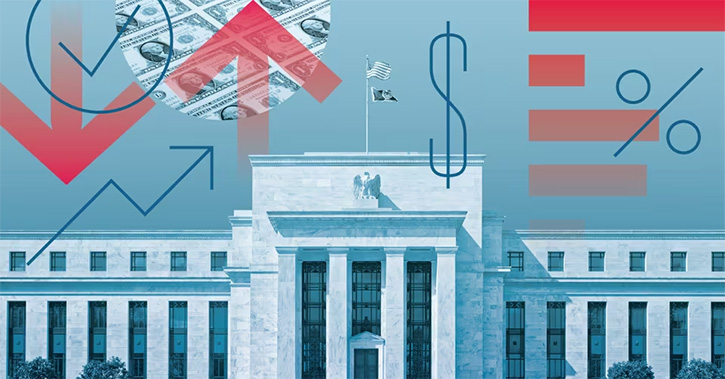Emma Wall: Hello, I'm Emma Wall and I'm joined today by JPMorgan strategist Stephanie Flanders. Hello, Stephanie.
Stephanie Flanders: Good to be here.
Wall: We've had some positive economic growth figures from the UK. Where is the Brexit recession we were promised?
Flanders: Well, if we actually go back to look at what economists were saying before the referendum, there were very few that were predicting significant imminent recession or a big financial crisis. I think everyone is rather sort of misremembering now that things have turned out so differently.
I think what most economists had always said would be that there would be a medium-sized hit that would be a slow burn for the economy and yes, possibly, a short-term hit to confidence on top of that. We didn't see that short-term hit to confidence, which was somewhat surprising. But if you look at the more forward-looking indicators, investment intentions, in particular, manufacturing and services, and consumer confidence, in a gradual way, have trended down since the referendum. So I would say we still have everything to prove in terms of the impact of Brexit.
Wall: And I think that consumer one is key because the UK economy is so dependent on consumer spending. Presumably, if we get the inflation we've been promised, that ticks up, things are more expensive, that consumer will stop spending and then we'll see that downturn.
Flanders: Yes, and I think that is why 2017 feels like a bit of a crunch time for the economy. And for some of those predictions, as you suggest, you're going to suddenly have real wages go back into negative territory or certainly not to be increasing very much after a couple of years when they've actually been doing quite well. But if inflation is going ahead of wages and if consumers feel affected by that, then we have seen them in the past cut back spending. Not sure what's going to fill the gap, because as you say, the recovery is being driven by consumers. Will investment fill the gap? It seems little unlikely in this uncertain environment. Perhaps exports, but that's why we're waiting to see.
Wall: And a key player in this game is, of course, currency. It's the thing that means that we're going to get more inflation, but it's also the thing that has been pushing up, providing a tailwind for the FTSE 100. Will this continue to be so?
Flanders: Well, I think there were structural conditions in the global economy that we had thought from the start of last year were favorable to UK large-cap equities, which of course is the lion's share of the FTSE 100 and the broader stock market. So I think there were reasons such as the recovery of global commodities, improvement in prospects in emerging market economies, that would be supporting earnings growth in those sectors anyway. But, yes, the pound has certainly helped. If we start to see some further weakness in the pound, that could be an extra tailwind. But I do think there are fundamental forces supporting UK equities.
Wall: It's not so good for the consumer having to spend a little bit more in the supermarket, but positive, then, for UK plc?
Flanders: It's the same old dynamic that we had in reverse in the last few years. When the UK economy was doing quite well, we were warning investors not to feel when you buy a UK stock that you're necessarily getting a piece of that recovery, because the UK stock market is so externally driven. But likewise, the reverse is true. If we have a domestically-driven slowdown now, the FTSE 100 needn't be affected because of these broader global forces.
Wall: Stephanie, thank you very much.
Flanders: Thank you.
Wall: This is Emma Wall for Morningstar. Thank you for watching.




















